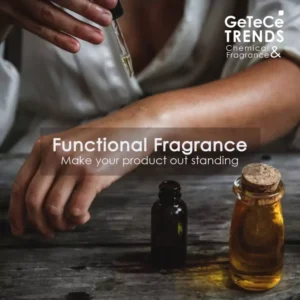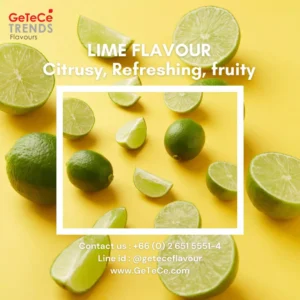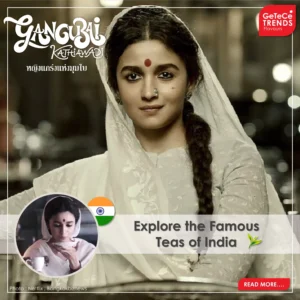While the industry focuses on capturing Gen Z, the most forward-thinking brands are already looking beyond—to Gen Alpha, the generation born after 2010 who will redefine fragrance in ways we’re only beginning to understand. These digital natives, growing up with AI assistants and personalized everything, will bring expectations that make even Gen Z’s demands look conventional.
For fragrance houses and FMCG brands, the question isn’t just “what does Gen Z want?” It’s “are we prepared for what comes next?”
The Generational Bridge: Gen Z as Preview
To understand Gen Alpha, we must first recognize what Gen Z has already changed. Their rejection of gender binaries in fragrance—72% preferring gender-neutral scents—isn’t a trend; it’s a paradigm shift that Gen Alpha will consider baseline. Their demand for transparency, authenticity, and values-driven products? That’s just the foundation.
Gen Z taught us that fragrance is a wardrobe, not a signature. They collect 3-5 fragrances on average, rotating based on mood and context. But this is merely scratching the surface of where personalization is heading.
The real story isn’t Gen Z’s preferences—it’s how those preferences are evolving into something far more radical with Gen Alpha.
Gen Alpha: The First Post-Digital Generation
Gen Alpha isn’t just growing up with technology—they’re the first generation for whom AI, machine learning, and hyper-personalization are completely normalized. They don’t remember a world without algorithmic recommendations, customized feeds, or on-demand everything.
This fundamentally shapes their relationship with products, including fragrance:
Personalization as Default, Not Premium:
Gen Alpha won’t pay extra for personalization—they’ll question why it isn’t standard. A single “one-size-fits-all” fragrance will feel as outdated to them as a rotary phone. They expect products that adapt to their individual chemistry, preferences, and even real-time biometric data.
Experience Integration:
For Gen Alpha, fragrance won’t exist in isolation. They’ll expect it to integrate with their digital ecosystem—synced with their mood tracking apps, wellness routines, smart home systems, and social platforms. A scent that doesn’t “connect” will feel incomplete.
Radical Transparency:
If Gen Z demands ingredient lists, Gen Alpha will demand complete supply chain visibility. They’ll want to know the carbon footprint of each ingredient, the working conditions of harvesters, and real-time sustainability metrics. Blockchain verification won’t be innovative—it will be expected.
The Gen Alpha Scent Profile: Beyond Traditional Categories
To understand where Gen Alpha is heading, we must first map where Gen Z diverged. Gen Z showed unprecedented acceptance of gourmand notes—they embraced sweet, edible scents in ways Gen X and Millennials never did. They gravitated toward skin scents (intimate, close-to-skin fragrances) and surprisingly, they rehabilitated white florals, a category Thai Millennials had largely rejected as “too mature.”
Gen Alpha’s teenage cohort is already showing distinct departures from even these Gen Z preferences:
Extreme Minimalism Meets Maximal Complexity:
Gen Alpha exhibits a paradoxical preference—they want fragrances that smell “simple” and “clean” on first impression, but reveal extraordinary complexity over time. Think single-note presentations (just iris, just vetiver) but with 15-20 supporting molecules creating depth. They reject obvious compositions but appreciate technical sophistication when they discover it.
Molecular and Abstract Over Literal:
While Gen Z loved gourmands that smelled recognizably like vanilla or caramel, early Gen Alpha preferences lean toward abstracted, molecular interpretations. Not “chocolate” but “the idea of warmth and comfort that chocolate represents.” Not “rose” but “the metallic-green freshness of a rose stem.” They’re moving away from literal olfactory representation toward conceptual fragrance.
Bitter and Saline Notes Ascendant:
Gen Alpha teenagers show remarkable acceptance of traditionally “difficult” notes. Sea salt, ozonic accords, bitter green notes (galbanum, artemisia), metallic facets, and even deliberately sour elements. They’re seeking olfactory experiences that challenge rather than comfort—fragrance as intellectual engagement, not just sensory pleasure.
Genderless Becomes Catagory-less:
Where Gen Z questioned gender binaries, Gen Alpha doesn’t even register them. They’re not choosing “gender-neutral” fragrances—they genuinely don’t categorize scents by gender at all. Interestingly, this makes traditionally “masculine” notes like leather, tobacco, and woods just as accessible as florals. Everything is fair game.
Transparent Synthetics Over “Natural” Claims:
Here’s a surprising twist—Gen Alpha shows less romanticization of “all-natural” than previous generations. They understand chemistry, they’ve grown up knowing that synthetic doesn’t mean harmful. They’ll choose a transparent synthetic molecule with verified clean chemistry over a “natural” ingredient with questionable sourcing. Authenticity about what something IS matters more than whether it’s natural.
The “Skin Chemistry Amplifier” Effect:
Rather than wanting fragrances that smell the same on everyone (the old perfumery ideal), Gen Alpha actively seeks compositions that dramatically transform based on individual skin chemistry. They want their unique biology to be part of the fragrance story. This is personalization at the molecular level.
The Market Opportunity: First-Mover Advantage
Gen Alpha’s oldest members are approaching teenage years—the beginning of fragrance consciousness. Brands that establish themselves now as understanding and serving Gen Alpha’s unique needs will capture loyalty from the most valuable consumer generation in history.
By 2035, Gen Alpha will represent the primary fragrance consumer base. Their lifetime value is unprecedented, but only for brands that speak their language—digital-first, hyper-personalized, radically transparent, and functionally beneficial.
At GeTeCe, we’re not just watching these trends—we’re building for them. Our development pipeline includes modular fragrance systems designed for customization, functional formulations backed by neuroscience, and complete transparency infrastructure. We’re partnering with brands who understand that the future of fragrance isn’t about predicting the next popular scent—it’s about creating systems that empower consumers to define their own olfactory journey.
The Future Is Already Here
The most crucial insight about Gen Alpha? They’re already influencing the market. Through their parents, older siblings, and early purchasing power, they’re shaping fragrance trends now. Brands waiting until Gen Alpha “grows up” to adapt will find themselves obsolete.
The fragrance industry stands at an inflection point. We can continue optimizing for current consumers, or we can build for the future that’s already emerging. Gen Alpha isn’t coming—they’re here. The only question is whether we’re ready.
In the intersection of technology, personalization, and olfactory science, we find not just Gen Alpha’s preferences, but the blueprint for fragrance’s next evolution. The future belongs to brands bold enough to build it now.









